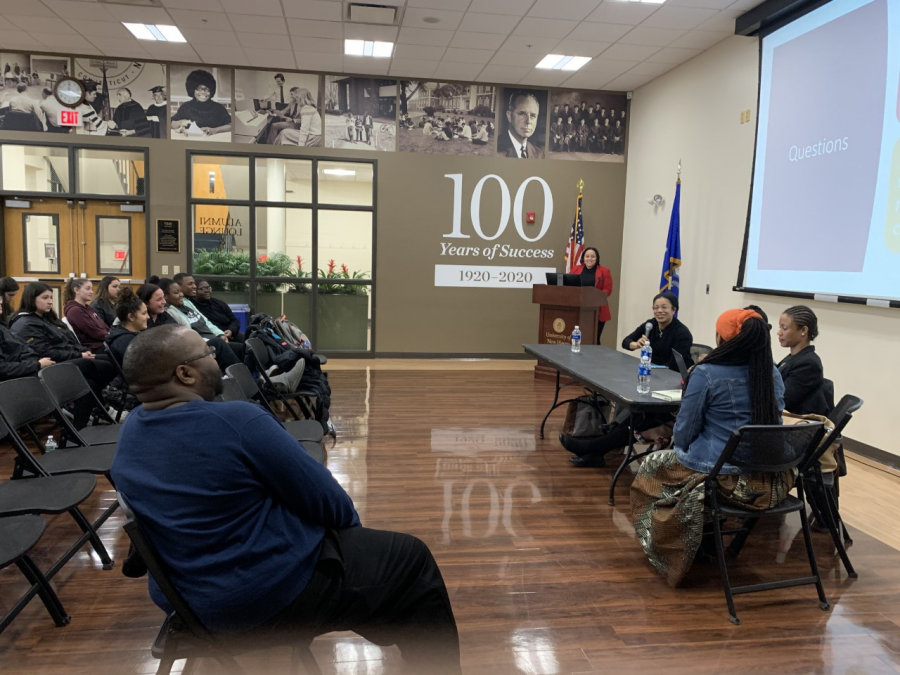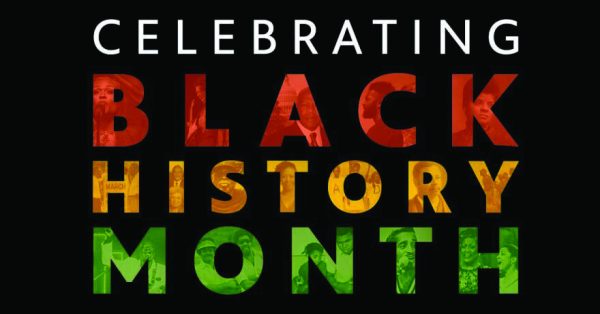NAACP Presents: A Black History Month Event, Discrimination in the Health Care Industry
Jennifer Edwards, forensic science major and executive assistant of the University of New Haven’s chapter of NAACP (National Association for the Advancement of Colored People), hosted a panel discussion last Tuesday about disparity in the country’s health care industry.
Three panelists joined her for a conversation on health care discrimination, a topic that recently made headlines after Serena Williams wrote an opinion piece for CNN titled “Serena Williams: What my life-threatening experience taught me about giving birth.”
Edwards discussed some of the statistics Williams shared, and explained that there is a history of racism in the health care system.
“Black women have been in a constant battle with the government, their communities, and the reproductive rights movement in general,” Edwards said.
The CDC reports that life expectancy after giving birth is 81.3 years of age for white females and 78.5 for black females. The maternal mortality rate (deaths per 100,000 live births) is 12.7 for white females and 43.5 for black females, and the New York Times says the infant mortality rate (deaths per 1000 infants) is 4.9 for white infants and 11.3 for black ones.
These discrepancies highlight the imbalance of health care treatment and the lack of equality between the two races.
The panelists included Sasha Turner, a history professor at John Hopkins, SciHonor Ruiz, a doula and trainer based in Bridgeport, Conn., and Ashley Bellamy a gynecologist at Southwest Community Health Center.
They discussed the barriers that intersectionality causes in reproductive health care, “the lack of education with minorities has a big influence on access to reproductive healthcare. Knowing your anatomy and how your body works and how you can encourage or prevent pregnancy is a big barrier for minorities,” said Bellamy.
Ruiz told a story about the daughter of Eric Garner’s (a black man shot by a police officer for selling cigarettes on the street). The woman died after giving birth.
“Reproductive health is not just in a bowl, it’s a part of a larger issue,” said Ruiz. “it was everything else around it that caused her death, and now a child has lost her mother.”
The discussion turned to talk about religion’s influence on contraceptives and the effect of politics on healthcare.
Also during the presentation, Turner appealed to the audience not to be blind by the statistics.
“I think those statistics are very crucial to help us wrap our minds around what exactly we mean by poor health outcomes for women,” said Turner. “But sometimes we get lost in the statistics, we forget that these are lives being lost, we forget that these are people at the center of these stories.” She said hundreds of thousands of poor black and Latina women suffer from the health issues summarized in statistics.
The University of New Haven’s chapter of NAACP is hosting events all month in celebration of Black History Month. All events are open to New Haven students and their weekly meetings are held at 8:30 p.m. every Wednesday in the Alumni Lounge.

Hannah Providence is a junior studying economics with a minor in professional and technical writing. She joined Charger Bulletin as a contributing writer...






